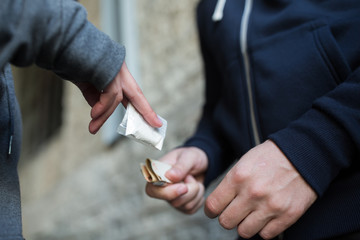
Going through the justice system can be one of the most daunting events in someone’s life, with some of the most long-lasting consequences. 27 states have incorporated a minimum age for arrest, prosecution, and punishment within the juvenile justice process. However, despite recent legislative efforts, New Jersey is not among those states. Depending on the severity of the crime, children may even be tried as adults in New Jersey, which adds yet another level of unbelievable concern if your child is arrested or accused of a crime. Continue reading to learn what you can expect if your child is being prosecuted and how a Mercer County juvenile defense lawyer can help your family today.
Does the juvenile justice process treat children differently?
The juvenile justice process is no less intense than the adult justice process for a child living through it, but New Jersey has taken many steps to gear the juvenile justice process to children’s unique needs. Unlike the adult justice process, which focuses on punishment for offenders, the juvenile justice process focuses on the rehabilitation of the child, and this rehabilitative focus is evident from a child’s first interaction with the court.
New Jersey law requires that all children be represented by an attorney. The child’s case will be heard before a Family Court judge and a Juvenile Conference Committee, composed of six to nine citizen volunteers all appointed by the judge. Their decision as to the child’s future will be based on a series of factors, including the nature and circumstances of the offense, whether and how much someone was injured and/or property was damaged, the child’s age and prior record, the child’s home life, the child’s physical and psychological needs, and, in particular, the developmental needs of a child with learning disabilities. New Jersey courts also have a range of sentencing options for children: community service, treatment programs, work or academic programs, among others.
However, even with these special considerations, it should be noted that children may still face dire consequences. Children may still encounter considerable sentences. Among dispositions for major crimes, for example, adults will face life in prison for purposeful or knowing murder, whereas a child will face 20 years. For other first-degree crimes, adults will face 20 years while children face 4 years. If a child has been previously convicted of a crime, the maximum disposition could be extended, and under the No Early Release Act, the child may be ineligible for parole until they have served 85% of their sentence.
Moreover, in some situations, children may be tried as adults. These unusual—but not impossible—circumstances include aggravated sexual assault, carjacking, and murder.
What should I do if my child is accused of committing a crime?
The length of jail time permitted for children represents a considerable part of a child’s life, should the Juvenile Conference Committee decide against them. If your family is navigating a difficult, stressful journey through the juvenile justice process in New Jersey, please give us a call. We’ll do everything in our power to guide you and your child.

